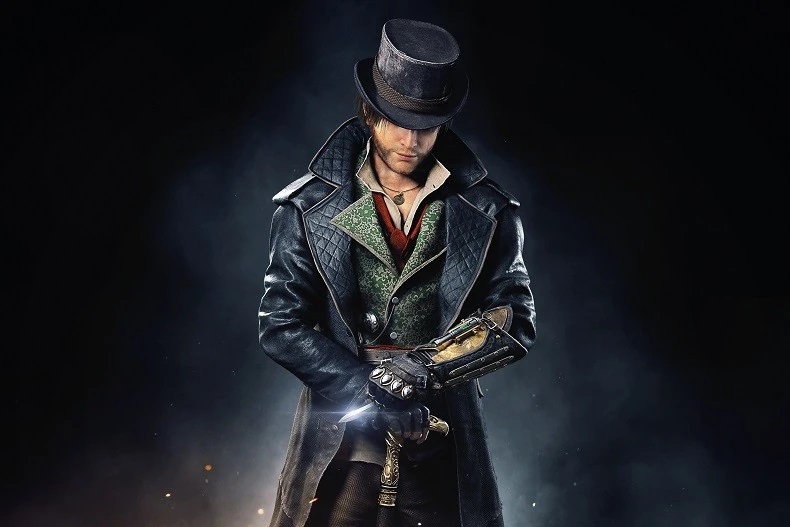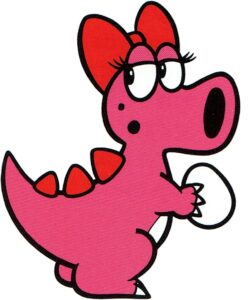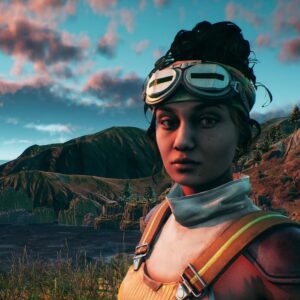June is Pride Month, meant to honor the history, legacy, and progression in the LGBTQ+ community towards acceptance, inclusion, diversity, and celebration. From the first riots launched by drag queens at The Stonewall Inn in the summer of 1969 to the rights of queer couples being equal in terms of marriage in 2015 and everything before, during, and since, the LGBTQ+ community have often represented the misfits, the one group it was still socially acceptable to berate and harass. This vibrant community has had to stand up and fight for every inch of their rights, from those that straight couples receive without a second thought, to the struggles and pain caused by the AIDS epidemic, originally called the “gay cancer.”
Video games, despite those who would disparage the medium, has always been an art form based in storytelling, and as art reflects life, so too do characters in video gaming also represent the LGBTQ+ community, and their inclusion has become more and more frequent, even evolving to the point where many times, players have ways to canonically play as gay, lesbian, bisexual, asexual, and so forth: the choice, simple as it may seem, reflects a huge push in inclusion and representation. Here, we celebrate gaming’s best reflection of the LGBTQ+ community. These characters are on the right track, baby – they were coded this way.
**SPOILER ALERT: The following characters identify as representatives of the LGBTQ+ community. Check all bigotry at the proverbial door before proceeding.**
Jacob Frye (Assassin’s Creed: Syndicate)
Bisexual

We start with one of the least represented sexualities in males, though lecherous views may make female representations more “acceptable” – bisexuality. Though women may get the pass because some dirty birdy thinks two women is okay as long as a man is in that menage-a-trois, two men instantly become gay, in a “bi now, gay later” plan. Not so, say the minds behind Assassin’s Creed: Syndicate – Jacob Frye is indeed bisexual, and more importantly, plays not one iota into the story of the game.
Because bisexuality is everywhere, in all genders, and it’s okay. In fact, compared to both heterosexuality and homosexuality, bisexuality continues to be rebuffed, with both sides continuing to compare bisexuality as a phase on a person’s way to their “real” sexuality. Say that too loud around the Frye twins, however. See which way that hidden blade swings.
Ellie (The Last of Us)
Lesbian
You know if the incels are pissed, you’re doing something right. That’s not to say Ellie is a perfect character when it comes to her blooming sexuality. She is, after all, only 14 in the DLC pack The Last of Us: Left Behind, and there is something, albeit minor, to be said about sexuality and youth. Though it can be damaging to call a blossoming sexual identity just a phase, we do know that sexuality is on a fluid spectrum, and in our early years, experimenting is natural. However, the majority of backlash the character, and by extension, Naughty Dog made is of the EW GHEYYYYYY variety, ranging from gays taking over gaming to forced insertion of feminism to “totally perverted and f***ing sick.”
Ellie is not a perfect example of representation, but she is a very real one. Were her kiss scene with friend Riley to be executed with a boy, nothing would be made of it. It may even make the DLC a “coming-of-age masterpiece.” Guess what? It is anyway. And it’s notable that in 2013 (in universe), even amongst the Cordyceps break-out, it’s still easier and more natural for two girls to kiss than it is in the real world.
Orlando (Fallout 76)
Non-binary
No one knows where they came from, why they’re really there, or who The Management they work for really is. But one thing people know is that they don’t identify within the male/female binary, and everyone’s okay with that. Even Evelyn Russo, as she argues with Orlando for use of the Whitesprings’ vertibird, has no problem with the use of they/them pronouns. Orlando’s non-binary status was confirmed by Fallout 76’s voice director Phillip Reich, and was even voiced by a queer/two-spirit actress, Carolina Hoyos (she/they).
Birdo (Super Mario Bros. 2)
Transgender

Originally an antagonist, Birdo has cemented herself as a loose ally, primarily due to her flirtatious nature with Yoshi. She’s go-karted with the Mario gang, played soccer, baseball, and even started going to the only party that destroys friendships, the Mario Party. But to the trans community, she is an icon.
In the booklet from Super Mario Bros. 2 (known as Super Mario Bros. USA in Japan), it was stated that Birdo likes wearing bows and would rather be called “Birdetta.” In the Japanese manual for Doki Doki Panic, the Japanese game that would ultimately have their main characters replaced with Mario and friends, it would state that Birdo would rather be called “Cathy.”
Birdo is often considered one of the earliest trans characters in gaming; however, Nintendo, for all their wisdom, has not always had the best track record when dealing with members of the LGBTQ+ community. Before Miis in Tomodachi Life were being restricted to heteronormative laws, Nintendo has not commented on her trans nature, implying she is a cisfemale.
But those who know, know. Another reason to respect retro gamers.
Arcade Gannon (Fallout: New Vegas)
Gay
More comfortable with an acerbic quip than a plasma weapon, this Followers of the Apocalypse scientist is one of the purely good characters in a series where an ulterior motive isn’t optional, it’s mandatory. Plus, he’s openly gay to boot, rocketing him up to the top spot on my personal GCILF list (which of course is short for “Gaming Characters I’d Like to Feature in an article”).
It sounds like a throwaway line when Arcade talks about not being a good partner for other men, but trusting Courier Six, combined with potential endgame outcomes, displays a harsh truth many gay men, and by extension, the LGBTQ+ community still have to deal with nearly ten years after Obergefell v. Hodges in the US: in large swaths of the nation (and the world) it’s still okay to harass queer people – perhaps not legally, but in the court of public opinion.
Minor spoilers just past this colon: Before he was part of the Followers of the Apocalypse, he was the child of a high-ranking member of the sinister pseudo-government group The Enclave. Therefore, despite doing altruistic deeds with the Followers, should his lineage to the Enclave be discovered, the New California Republic could jail him for the rest of his natural life. However, should the opposing side, Caesar’s Legion, find out about his homosexuality, he could be put to death. Painfully, but understandably, Gannon sometimes has a very fatalistic view of the world, as neither major faction is particularly keen on him. Likewise, initially, the beginnings of the queer movement began as straight people begin to “tolerate” us.
However, “tolerance” is for things like five straight days of temperatures over 100°F, or wiping the mayonnaise off your burger after you told the drive-thru intercom twice. Queer people want – nay, need – acceptance and inclusion. But as Arcade says during dialogue, “Nihil novi sub sole.” Translated from Latin, “There is nothing new under the sun.”
Parvati Holcomb (The Outer Worlds)
Asexual

Parvati, the first recruitable companion in Obsidian’s The Outer Worlds, can be found in Edgewater, where she lends a hand in deciding who ends up with the power and who ends up with the short end of the stick. She’s bubbly yet riddled with self-doubt, and her shy yet lovable nature is reflected within her companion quest, where the player can help her win the affections of the captain of the Groundbreaker, Junlei Tennyson. She’s adorable, a beast with a melee weapon, and has one of the most real representations in gaming, concerned how hard it will be to romance a partner while she herself is asexual.
For those who may not have heard the term, The Trevor Project defines an asexual as someone who has little to no desire for sexual contact from any gender, regardless of what gender they are drawn to romantically. Just as sex and gender are two similar-but-separate constructs, so too are sexual desire and romantic desire. The latter should be an easy idea to grasp – heterosexual men have long been able to have sex without developing romantic feelings, as decades of Hollywood have displayed and sometimes even lauded. Parvati, as she divulges to the player, wants to be with Junlei, even if that romantic feeling doesn’t necessarily include primal touch.
My words may be overly effusive, but I mean every word: if we had more honest and true representations of the LGBTQ+ community like Parvati, the gamersphere would be a better virtual place.
